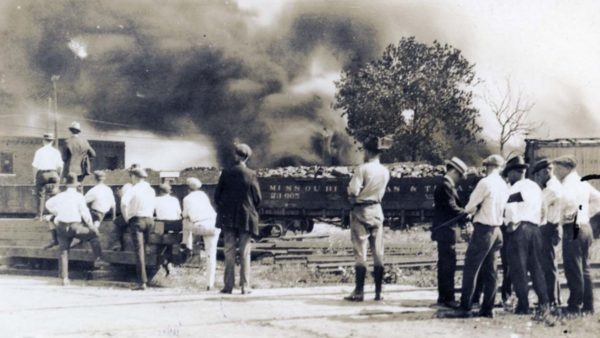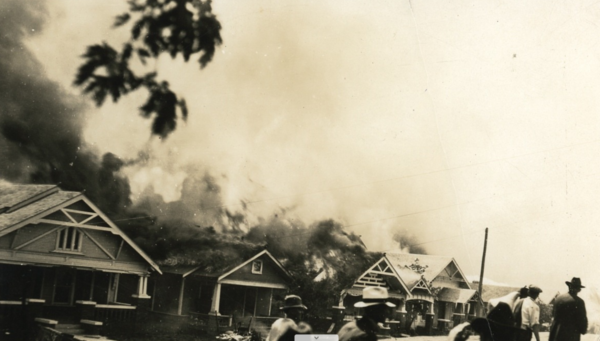On Tuesday, attorneys representing the victims and descendants of victims of the Tulsa Race Massacre filed a lawsuit against the city of Tulsa. The plaintiffs are seeking reparations nearly 100 years after the city’s iconic Black Wall Street was burned and destroyed by white mobs.
Attorney Damario Solomon-Simmons, who is leading the suit, which was filed Sept. 1 in state court, says that much of Tulsa’s spotted racial history emanates from the massacre that killed as many as 300 people.
During a 12-hour period between May 31 and June 1, 1921, the Greenwood District of Tulsa, Oklahoma bore witness to the largest incident of racial violence that nation has ever seen. White mobs, some equipped with weapons given to them by local officials, descended on an area of more than 35 square blocks home to a thriving Black community and left it completely destroyed.

Over 1,000 Black homes and businesses were burned and looted, and 10,000 people were left homeless as a result of the riot. The destruction inflicted on the community is equal to $20 million in damages today.
Victims were not compensated by the city or by insurance companies, and the lawsuit claims that the massacre created economic disparities that still plague the city today. The suit also alleges that the the city intentionally stifled Greenwood’s efforts to rebuild after the massacre and favored white areas of Tulsa over African-American communities.
“We’re not just talking about what happened in 1921. We’re talking about what’s still happening,” Solomon-Simmons said at a news conference. “We believe this lawsuit will be successful because there is no question there is a nuisance created by the defendants.”
A racial divide still splits Tulsa along economic lines today. Black people in Tulsa are twice as likely to be unemployed as whites are, and the median Black household income is only half that of whites.
A dollar amount has not yet been specified, and the plaintiffs are seeking that the city “abate the public nuisance of racial disparities, economic inequalities, insecurity, and trauma their unlawful actions and omissions caused in 1921 and continue to cause 99 years after the massacre.”

The suit will also seek a detailed account of property and wealth that was lost or stolen, and the establishment of a hospital in North Tulsa and a Tulsa Massacre Victims Compensation Fund.
The suit will also seek that descendants of those injured, killed, or who lost property in the massacre be granted immunity from all city and county taxes and utility expenses for 99 years.


